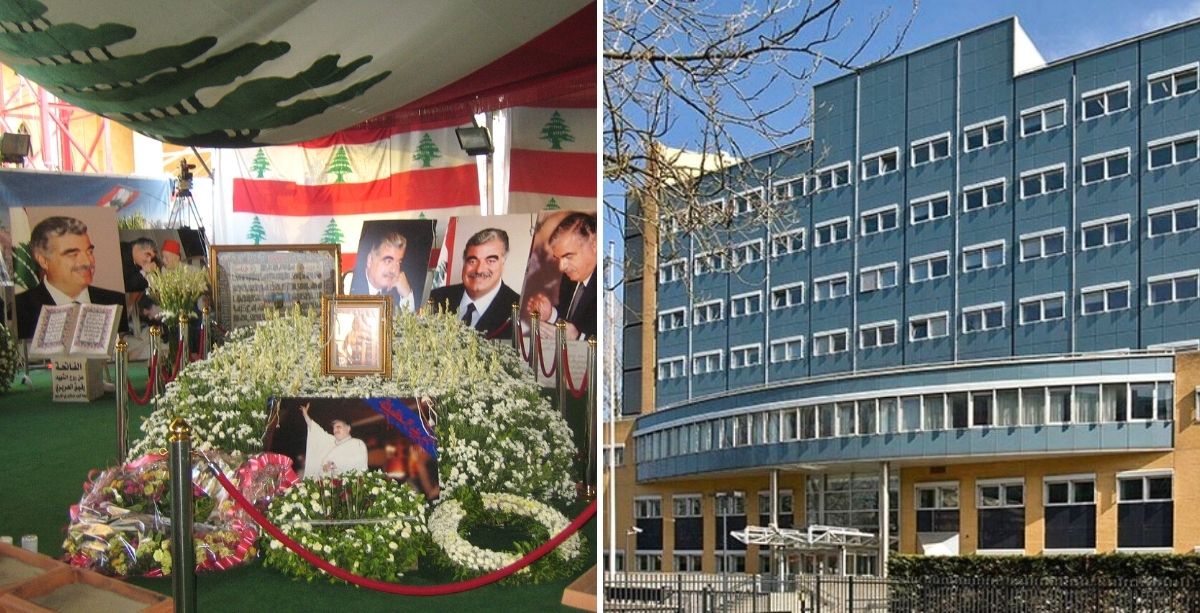In 2007, the United Nations Security Council adopted Resolution 1757 in a pivotal decision that impacted Lebanon’s politics amid high internal tensions.
The Birth of a Tribunal
With the aim of bringing the murderers of former Prime Minister Rafik Hariri to justice, the Security Council invoked Chapter VII of the United Nations Charter to adopt Resolution 1757.
The Resolution authorized the formation of a special, international tribunal that would try suspects in Hariri’s assassination, which had taken place on the 14th of February, 2005.
The move came at the request of then-Prime-Minister Fouad Siniora, who had asked, in a letter to U.N. Secretary-General Ban Ki-moon, for the establishment of a tribunal of international character to hold accountable all those found to be involved in the terrorist attack.
Sometimes referred to as the Hariri Tribunal or the Lebanon Tribunal, the Special Tribunal for Lebanon (STL) was conceived with the passing of the Resolution, on May 30th, 2007.
France, the United Kingdom, the United States., Belgium, the Republic of the Congo, Ghana, Italy, Panama, Peru, and Slovakia voted in favor of the Resolution.
No votes against it were made, but China, Russia, Qatar, Indonesia, and South Africa abstained from voting.
UNSC Resolution 1757 was thus adopted, despite warnings that it might have serious repercussions on the charged Lebanese political scene, due to its interference in Lebanon’s internal affairs.
Indeed, taking Hariri’s case to an international court fueled strong internal disagreement in Lebanon.
Widening the Rift
Part of the Lebanese, most notably, supporters of the assassinated Prime Minister, vehemently advocated the formation of such a Tribunal and viewed it as a defensive wall against future assassinations.
On the other hand, another part of the population opposed the move, fearing hidden agendas that might accompany it with the involvement of world powers.
Various countries in the region and around the world were also split on the matter.
While some nations, including Western powers, praised the Tribunal as a powerful legal tool that would have positive effects on the Middle East, others saw a risk in its establishment, including South Africa, whose ambassador proclaimed during the Security Council meeting that there was “a risk that the Security Council imposing the Tribunal on the divided political leadership in Lebanon will undermine the political stability of an already fragile Lebanese state.”
After adopting the Resolution, the Security Council gave the Lebanese government until June 10, 2007, to notify the U.N. that the legal requirements for entry into force have been complied with, practically giving Lebanese parties 10 days to reach an agreement before the Resolution took effect.
Later, the Council asked Secretary-General Ki-moon to coordinate with Lebanon and take the necessary measures to have the STL established “in a timely manner.”
As per the Resolution, the Tribunal’s expenses would be handled by U.N. Member States, unless Lebanon was capable of bearing them.
The STL ended up officially opening on March 1st, 2009, 51% of its funding being handled by voluntary contributions, while the remaining 49% was secured by Lebanon.
The Tribunal delivered its long-anticipated verdict on the case in August 2020, nearly a decade and a half after Hariri’s killing.
Several months later, in May 2021, a report revealed that the STL had run out of funds as a result of Lebanon’s economic meltdown.

















